Szijjarto also remarked that
This national day also bracketed and trivialized all those petty efforts and movements of we have seen in the past days and weeks that want to tear down Hungarians’ self-confidence, that preach we should ‘be small’ and ashamed.
The program also raised the point: Is there any other EU country today where, ten years after the start of mass illegal migration, a Christian symbol could still be displayed at an official state ceremony – given that liberal thinking claims it might offend migrants? The answer: If we gave a green light to immigration and the migrants
we’d be facing the same problems that are plaguing Western Europe – unlivable conditions in big cities.
In the program, footage was shown from France after PSG’s Champions League victory. “But that’s actually a worse sign – imagine if they had lost,” Szijjarto remarked. “Whereas on our national day, in Hungary, we had no burning cars. In Western Europe, whether it’s New Year’s celebrations, a protest, or any occasion, big cities often end up like this.” He recalled Hungary’s border crisis a decade ago, when migrants attacked the border fence. “Very similar scenes to what we now see in Western Europe,” he said.
"Remember, when we put up the fence to stop illegal immigration and illegal immigrants themselves, we had an incredibly violent, aggressive attack by a fairly significant group of illegal immigrants on our southern border, our border security and our border guards. We may remember that. There were scenes like this."
The minister stressed, "And let's remember, here they are looting shops, and in our case they went through the orchards, the agricultural land, they occupied the railway station, they demanded that they should get everything for free and we should take them to Germany for free. The same thing, and we spoke out ten years ago. That we can see what is happening on our southern border, and if we let this into Europe, what we see in the video will happen everywhere. Parallel societies will be the norm in Western Europe."
An extremely vocal minority is oppressing, terrorising and frustrating the present-day representatives of the communities that have lived there for centuries.
According to Szijjarto,
illegal immigration brings enormous terrorist and social risks. The fact that no-go zones now exist in Western European cities – this would have been unthinkable just a few decades ago. And I remember when I first said this, maybe in 2015 or 2016 at the UN General Assembly, to some American media. Back home, left-wing journalists ridiculed me: ‘What nonsense, how could there be no-go zones in Western or American cities?'
“But look at Budapest,” he concluded. “There isn’t a single religious or religious-style building where you need heavily armed commandos in large numbers to guarantee safety. That’s the difference.”
Brussels Wants to Remove Patriotic Leaders
The program also discussed the situation in Serbia, where there is unrest and rising tensions. The Serbian president speaks of foreign attempts at interference, while events are becoming increasingly severe. Now both sides are accusing each other of trying to incite civil war. According to President Vucic, it is the opposition protesters who want to create a civil war–like situation in Serbia, while the opposition protesters claim it is Aleksandar Vucic himself who is dragging his own country into civil war. From our perspective, the only thing clear is that one part of the press blames Vucic, while another part reports that the opposition protesters are growing more aggressive.
In my view, it is crystal clear that there are open attempts to topple patriotic, peace-oriented, national-interest–driven Central European political leaders—leaders who, unlike Brussels, dare to defend their own national interests and take on disputes if necessary. The coordination center for these attempts to overthrow governments is in Brussels. And in this operation, the failed American Left—the U.S. Democrats—are also participating, alongside the pro-war Brussels elite in Europe. For this elite, the fact that there are three leaders in Central Europe—the Serbian president, the Hungarian prime minister and the Slovak prime minister—who openly represent their national interests even against Brussels, who have made it clear they will not drag their own nations into a meaningless war that has nothing to do with them, is not just an irritant but a major obstacle.
declared the Minister of Foreign Affairs and Trade.
“And here we have three leaders who openly pursue a patriotic policy. Everyone can see that there are open, foreign-backed attempts to bring down these three leaders and their governments,” he added, emphasizing: “There is a survey which claims that a large part of the Slovak population sees revolution as the only way out—I’d like to know what question was asked, and to whom. Or take the case of Hungary, where the leader of the largest political group in the European Parliament openly declares which politician represents the future of the country and which belongs to the past. Or the brutal, violent scenes staged in the streets of Belgrade by so-called protesters. These are all just different chapters of the very same playbook.”
And this playbook is being written in Brussels by the pro-war Brussels political elite, which is working closely with the failed American administration, that is, the American Democrats. In Serbia, too, there is an open attempt at external interference, the aim of which is to remove President Vucic from office and sweep him out of public life and politics. And it is quite obvious that this is being strongly supported by a coordinated international media campaign, certain elements of which we often see in Hungary as well,
Peter Szijjarto said.
He emphasized: I personally know very well – and I can now say this without any false modesty, after more than ten years of working together in various positions – the President of Serbia and many members of the Serbian government. The claim that they want to incite a civil war is about as well-founded as Bloomberg’s so-called “information” about the alleged Trump-Orban phone conversation.
In response to comments, the Foreign Minister highlighted:
So, here’s the situation: the European press has indeed managed to create a context as if we alone were representing this position, which is obviously not true. And it’s obviously not true not only because the Slovak government also represents a pro-peace stance, but because the situation is much more complex and much broader. If you watch closely, Endre and others, you’ll see that today in Europe, political movements and parties are getting stronger and stronger that think in a patriotic way and represent peace in the case of the war in Ukraine.
He added: We have now reached the point where in many countries, patriotic parties either win the elections or come in a close second. For now, the mainstream is still strong enough to cobble together a majority out of second-, third-, or fourth-place parties. The purpose of such coalitions is not to ensure the functioning or development of their countries, but simply to prevent the winning party from forming a government. We saw this in the Netherlands, we saw this in Austria, and in several Western European countries where patriotic parties came in second. This is the ongoing process. The mainstream representatives are trying to slow it down, halt it, reverse it – but clearly they cannot stop it. They can slow it down, but they cannot prevent it. So, in my view, with each passing day we are getting closer to a great patriotic turn in Brussels, closer to the day when the Patriotic Group, which from nothing has become the third largest faction, will become the largest group in the European Parliament.
The Austrian NEOS, the smallest liberal governing party, had one of its ministers in Odessa yesterday, making a classic pro-Ukrainian, pro-war statement. Meanwhile, the spokesperson or a parliamentary group member of the Freedom Party (FPO), which actually won the election but was pushed into opposition, gave a pro-peace response to this. So, to answer Endre Szabo: it is not only in Hungary that there are pro-peace forces – fortunately, there are also such parties across Europe, even in Western Europe, that are pro-peace.
The Freedom Party has roughly five to six times the support of NEOS. Right now NEOS only just barely cleared the threshold to enter parliament.
Balazs Nemeth raised the point that some people claim foreign capital has fallen out of love with Hungary, and that even these massive investments will not change that. They write that Peter Szijjarto’s optimism is not genuine, since the well-known fact of declining investment contributes significantly to economic stagnation.
In response, the minister said:
I can only state a few facts. On the subject of China, I have been constantly criticized – to put it mildly – for the high number of Chinese investments coming to Hungary. Which is true: BYD, the world’s most successful electric car manufacturer today, is building its first European plant in Hungary, which is nearing completion and the start of production. In addition, the world’s largest electric battery manufacturer, CATL, is also finishing its plant in Debrecen, and will soon begin production, not to mention their suppliers.
Then there’s German caution. Mercedes is finishing the construction of Europe’s largest Mercedes factory, which will be Hungary’s biggest car plant, with a capacity of 300–400 thousand and will ramp up its car production in Hungary. Audi’s plant in Gyor is running at full capacity, essentially maxed out. And in mid-September we will go to Debrecen to celebrate that BMW will start mass production of its car built on a purely electric platform in Hungary.
With a big ceremony, BMW will begin its actual operations as the construction phase of the plant ends. As for the 'fleeing Americans', I can only say that since President Trump took office, I have announced five U.S. corporate investments in Hungary,
he added.
Nemeth then mentioned another piece of fake news on The Fighters’ Hour, namely a video claiming that the Tisza Party’s supporter said Fidesz-KDNP rigged the elections both in 2018 and 2022. Peter Szijjarto responded:
People are fooling themselves. I was there at Fidesz headquarters, close to these people, both then and in 2022 – there was no fraud. Fidesz had a parallel vote-counting system, and the results matched. There could not have been any fraud.
The host then remarked: Now there is a person standing on stage saying everything is bad and must be changed, who back then was proud to be present on that side in 2018 and 2022.
Yes, we are back to the same point. And this is not a personal matter, it is much more important than that – it is a question of credibility. There is a man now on screen. For as long as anyone can remember – and I know that sounds arrogant since we’re still young, but let’s say in recent years – this person was at every Fidesz event. Not only was he there, he always insisted, demanded, begged to be in the front row, near the ministers, sitting at the table, right in front so he could clap, cheer, dance and applaud.
"I don’t know how many videos could be shown of him in the front row clapping at annual addresses, dancing and partying on election night, clearly not unhappy with the election results. Holding senior positions in state companies, praising everything that was happening, being enthusiastic about it. And now he claims it was all bad, everything is heading in the wrong direction, everything is shameful and outrageous," added Szijjarto. He stressed:
So please, just a year and a half ago this man was celebrating, cheering, praising what was happening. And now he says it’s all bad. Can that be credible? I simply cannot comprehend it.
Once again, international matters: the leftist French Le Monde wrote a long article claiming Hungarian youth spent the summer shouting “dirty Fidesz.” Their supposedly reliable source was opposition activist Lili Pankotai. The article suggested that at the Sziget Festival, one of Europe’s largest with 400,000 visitors, all 400,000 people were shouting that. They also described the Orban government as an “extreme right-wing populist” one. "What is the Western press like today?" asked Balazs Nemeth. The minister replied:
I don’t know, because I don’t read it. I don’t frustrate myself with such things. I have enough work and tasks as it is, I don’t have time or even the inclination to bother with that. I can only say one thing: I’ve never been to Sziget and I don’t plan to go in the near or medium term.
The minister continued: "But I was at Taban, where classical music programs took place recently. We went to the Neoton concert, I spoke with several people who had attended all three or four days, for twenty-three days in total, and I saw no trace of that. Young people were there, they had a good time, they enjoyed themselves in a cultured manner, and I saw none of this. Interestingly, the news always picks up on the events where there is such chanting, while those where there isn’t – and there are many more of those – opposition journalists are never present. They never write about concerts where people behave in a cultured way, enjoy the music, eat, drink, dance, and go home with good memories. Such articles you shouldn’t expect to see."
Instead of focusing on the French economy – which is in deep trouble, with public debt skyrocketing, with such serious problems that a proposal has been made and is close to adoption to eliminate some public holidays. They want to abolish Easter Monday and May 8, their Victory Day over Nazi Germany, so people could work two extra days. They think that might solve France’s economic problems.
So much for the “everything is better in the West” narrative. This is yet another example that it is not. I believe these stories show that it would be much better if international politics returned to the foundation of mutual respect. I don’t understand why Western European governments, serious politicians, elected leaders think it important to spend a significant part of their time and energy commenting on developments in other countries,
he stressed.
He added: I think it has been proven in recent times that many Western European countries, governments, and politicians do this only to distract from their own problems. And this has real consequences in everyday life, such as the headline you just showed from Index.
The program couldn’t go out without a false story about the Otthon Start (Home Start). They wrote that Poland also had a similar program, offering subsidized housing loans, and it ended in chaos. But the article failed to mention that in Poland there were no square-meter price limits, no house price limits. The article was about the previous government, before Tusk, which in 2023 launched a similar program that ended in chaos. Then Tusk’s government eliminated subsidized housing opportunities.
In response, Peter Szijjarto said:
Look, there is still that MEP from the Tisza Party, a woman, who once said: the worse it is for Hungarians, the better it is for the opposition Tisza Party,
And this is the same attitude again. Clearly, the Home Start program is good for young people, good for Hungarians, good for the country. It simply is, because it is a scheme that significantly eases and makes it possible for people to own homes.
In Hungary, home ownership has a special significance and importance for people. We want Hungarian young people to be homeowners, not tenants. With the Home Start program, we can provide this as a realistic option. So it is obviously good for young people and good for the country. And if I reverse what that certain MEP said – that what is bad for the country is good for the opposition – then what is good for the country is bad for the opposition,
the minister noted, adding:
He underlined: And obviously the Home Start program is bad for Tisza, bad for the opposition. That’s why their journalists attack it, that’s why their politicians criticize it. And it’s clear that what they say has nothing to do with reality. That’s why I can only encourage young people to go for it and make use of this opportunity.
On the program it was also mentioned that if the Tisza Party came to power, they would abolish the 13th-month pension, abolish family support schemes, and abolish the Home Start program. That means Hungarians have a clear choice at next year's elections: do they want a government that continues the Home Start program, maintains the 13th-month pension, maintains family support, and carries out the family-based tax reform, or a government that eliminates the Home Start program, eliminates the 13th-month pension, eliminates family support, and eliminates farmer subsidies.
Cover photo: Hungary's Foreign Affairs and Trade Minister Peter Szijjarto speaks at the Ministry announcing GE's investment in Vernova (Photo: MTI/Zsolt Szigetvary)

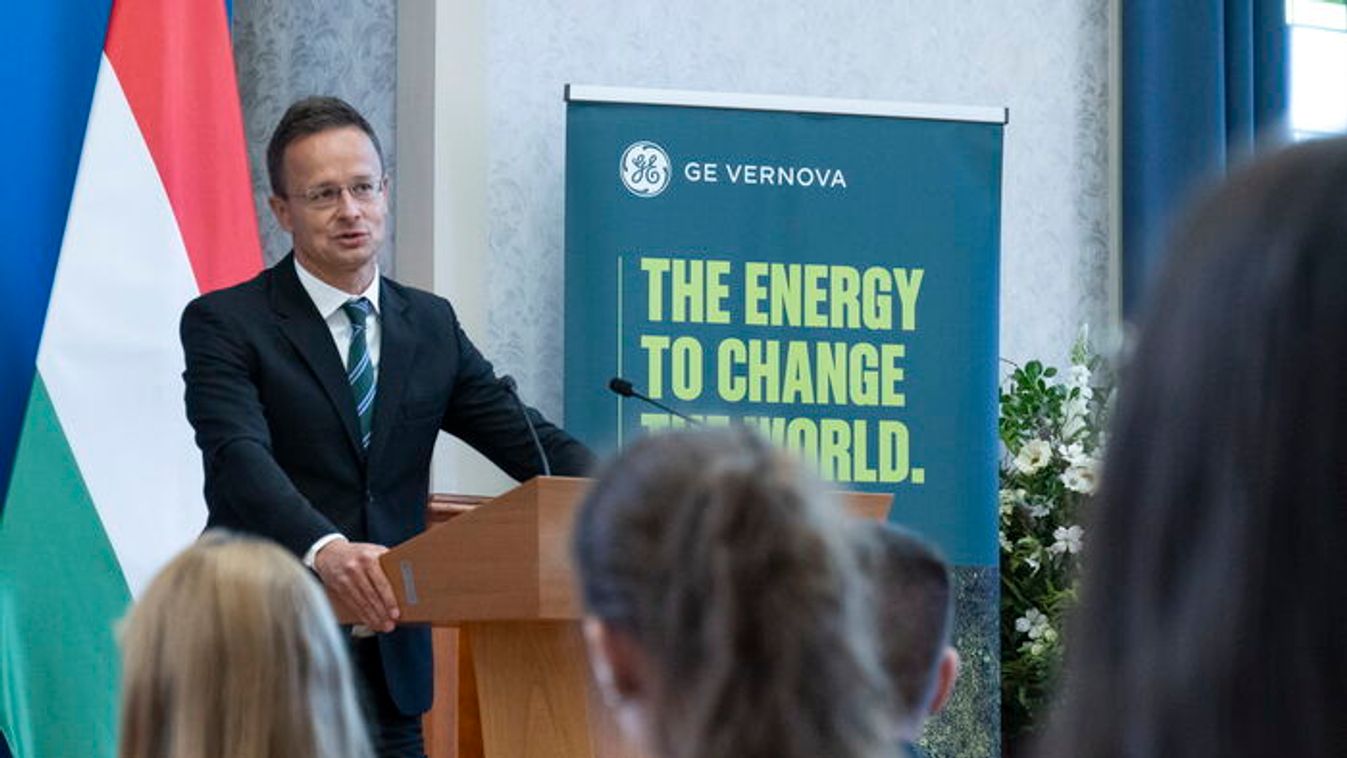








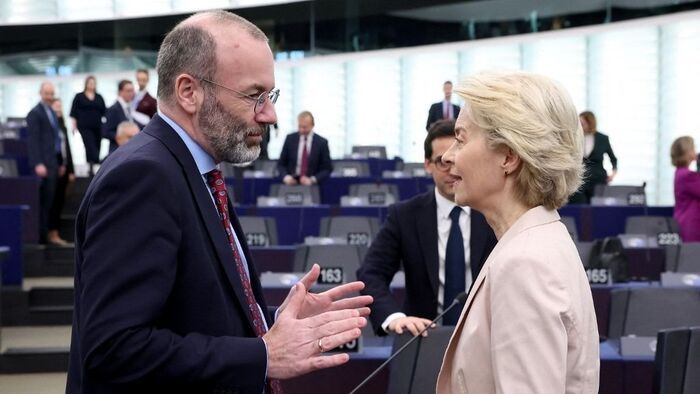




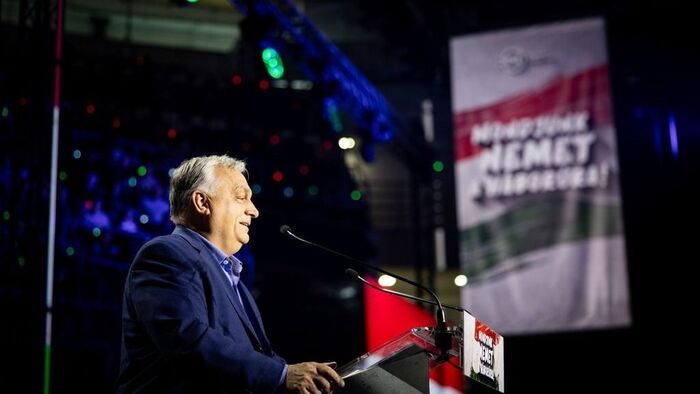

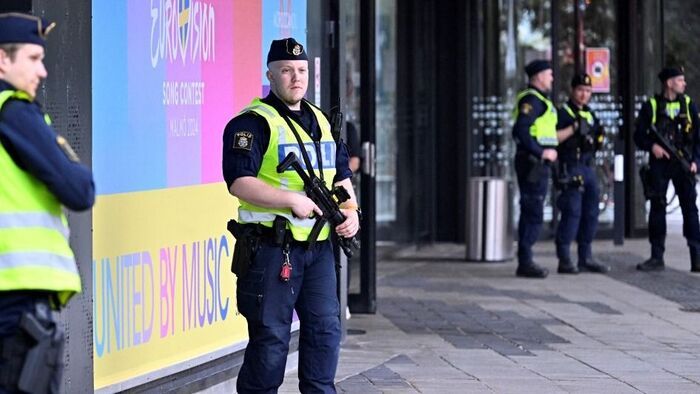
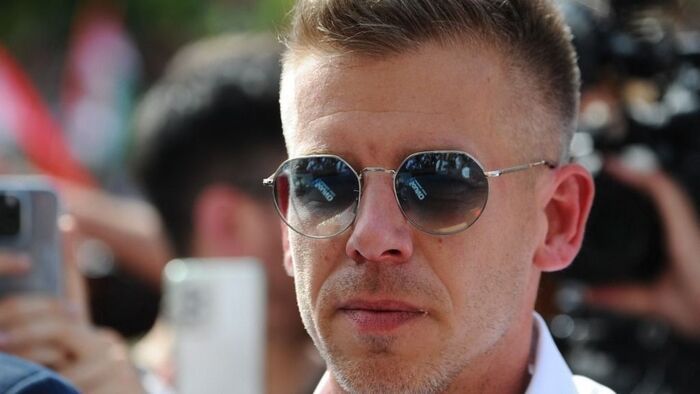





Szóljon hozzá!
Jelenleg csak a hozzászólások egy kis részét látja. Hozzászóláshoz és a további kommentek megtekintéséhez lépjen be, vagy regisztráljon!